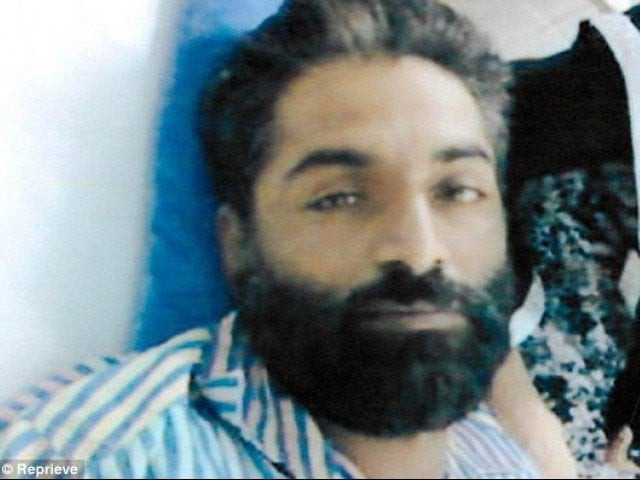‘Paralysed convict’s hanging is a cruel, peculiar punishment’
Basit’s mercy petition is still pending before the president

Basit’s mercy petition is still pending before the president. PHOTO COURTESY: REPRIEVE
Earlier, the Supreme Court had dismissed his appeal wherein he pleaded that executing him would be cruel and peculiar.
Basit had contracted tubercular meningitis while in prison and according to a medical board’s report, the illness had left him bedridden. Pakistan’s prison guidelines require a prisoner to stand on gallows in order to be hanged. The authorities have not explained how they intend to go around hanging a wheelchair-bound convict.

“Pakistan Prison Rules state that the rope for hanging must be the correct length, in order to avoid prisoners facing protracted strangulation (if it is too long) or decapitation (if it is too short). The rules state that the rope’s length is determined by measuring it from the lower jaw of the condemned prisoner as he stands on the scaffold. This and other procedures set out in the rules cannot be followed in Basit’s case, leaving open the possibility of a botched hanging,” Justice Project Pakistan project director Sarah Bilal said.
Read: How to hang a paralysed prisoner?
The Lahore High Court (LHC) had first stayed Basit’s case, but ruled earlier this month that it could go ahead, despite the prison’s failure to make clear how the execution would be carried out. The court added that Pakistan’s obligations under international law “should be kept aside.”
“The execution of Abdul Basit, a paraplegic, would constitute a cruel and peculiar punishment, violating not only the fundamental right to human dignity enshrined in our Constitution, but also Islamic jurisprudence as well as international treaties that Pakistan has ratified under the GSP plus status,” Bilal said.
The Pakistan Prison Rules do not cover the hanging of a man paralyzed from the waist down and his mercy petition is pending before the president.
“The president must use his powers to stop this execution - and show the world that we are a nation that protects the lives of those most vulnerable in our society and that we take our international commitments seriously,” she said.
The Human Rights Commission of Pakistan (HRCP) and several other human rights organizations have expressed outrage over the planned hanging.
The HRCP had called on the president to stay the hanging and grant him reprieve. “Human rights activists across the nation and beyond have been appalled to learn about the orders for Basit’s execution on September 22,” the HRCP said in a statement.
Read: Prison officials miss court deadline to explain hanging of disabled man
HRCP chairperson Zohar Yousaf said his mercy petition was still pending before the president. Yousaf said the convict’s execution would flout established custom, raise discomforting questions regarding the nation’s legal system’s callous attitude vis-a-vis humanitarian imperatives and cement notions of the Pakistani state and society as brutal entities.
Published in The Express Tribune, September 21st, 2015.



















COMMENTS
Comments are moderated and generally will be posted if they are on-topic and not abusive.
For more information, please see our Comments FAQ